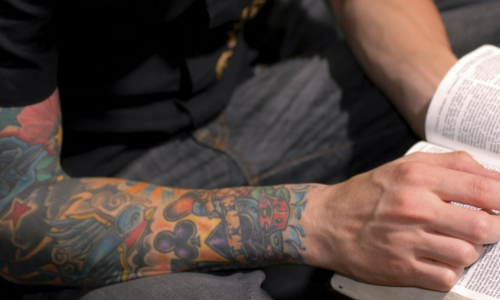The world of retail is full of options and a wide range of them. The market is for Primark. There’s also an industry for Versace. Chanel and Britney Spears. Clarks and Louboutin. It’s all in the picture. The most expensive items have an expense, but more and more in recent times, we’re seeing the cost of these items being borne by people who cannot afford them.
Some people purchase expensive products at the drop of an eye. This is fine and good if you’ve got an excellently paid job, substantial savings, or a wealthy family with you. However, many of us do not have any of these, so deciding to buy expensive products is a choice that isn’t financially sensible or even makes sense. It’s an unwise choice with bad consequences. Why would people make this choice?
The attraction of luxury is understood (just look at these stunning business suits for men by UK fashion designer Alexandra Wood). The soft buttery leather, the exquisite workmanship, the high-end quality, and the obvious logo proclaiming the luxury of the item without needing to say or do anything – yes, they’re all excellent. However, one incredibly unattractive thing to consider is the price. Would you rather be in to be in debt or poverty? What’s your preference? There are many reasons not to do it, not the least is that it can result in a massive amount of financial stress and put you in a position with no solution. Yet, every now and then people buy the things they want, even through a credit card.
Rationale.
Consumers do not behave rationally all the time. No-one does. Psychological research has proven this. An excellent example is the large number of people who spend money on things that they cannot be able to afford, even if it increases their personal debt, but usually end with huge sums of it. That’s a sign that people don’t always follow their best financial interests. This is a choice that isn’t logical; however, it’s understandable. The basic premise is that most people assume that the more expensive items are of higher quality. The cheaper products are considered inferior because they’re not high-end brands but are viewed as more premium.
However, the motivation behind purchasing a luxury item is far more than just wanting the top-quality apron. Studies have repeatedly shown that when they purchase expensive items, consumers can travel to a place that boosts their self-esteem. They feel like they belong to an exclusive club and may even think that they’ve achieved something when they spend thousands of dollars on an expensive bag. It is possible to find comparable, lower-priced items, but they’re not looking to, however, as they serve the same purpose and have similar quality. They exaggerate the benefits and neglect the disadvantages. Consider Apple products for instance. Apple hold a significant percentage of smartphones. they’re considered the most popular brand and have a massive fan base – however, their products don’t have any advantages in terms of quality or technological advancement. An example of this is Samsung. They have better phones and usually offer lower prices; however, Apple retains its market share due to the brand loyalty of its customers. Click for more Cutoda
Self-esteem.
As mentioned above, consumers feel more confident at their own selves if they purchase more expensive items. It’s as easy as that. It provides them with an identity that they feel is secure in a place even when there is a sense of insecurity. It strengthens their sense of identity in ways not available in other places.
Accomplishment
Consumers reward themselves through items they cannot afford, like getting to the most suitable location to purchase the perfect Chanel bag. It’s a reversed logic; however, buyers feel’ lifted’ in the moments before the purchase, the shopping and choosing. It’s like living a new life, but it is only for a short time before the urge to purchase more expensive products resurfaces.
Authenticity
The main benefit. The sentimentality or feelings of buying a high-end item is why replicas aren’t as effective. This is why many consumers prefer brand new items over second-hand ones, as they’re thought of as a lesser purchase. The feeling or memory of owning authentic, high-end products is something you can’t get. There’s a feeling among buyers that if you must purchase the less expensive or the imitation the best option is to just skip the purchase, as it’s just not worth it. Simply because of the simple fact that it’s not more in terms of money.
In the end.
The motivation behind purchasing expensive goods is easy to grasp – it’s attractive, and for those with the money, the cost is well. One of the more intriguing aspects of psychology is why those who can’t spend hundreds of dollars on the shoes of their choice nevertheless purchase them. The immediate increase in self-esteem and the sensation of accomplishment and belonging seem enough to overshadow the more long-term issue of mounting debt.


